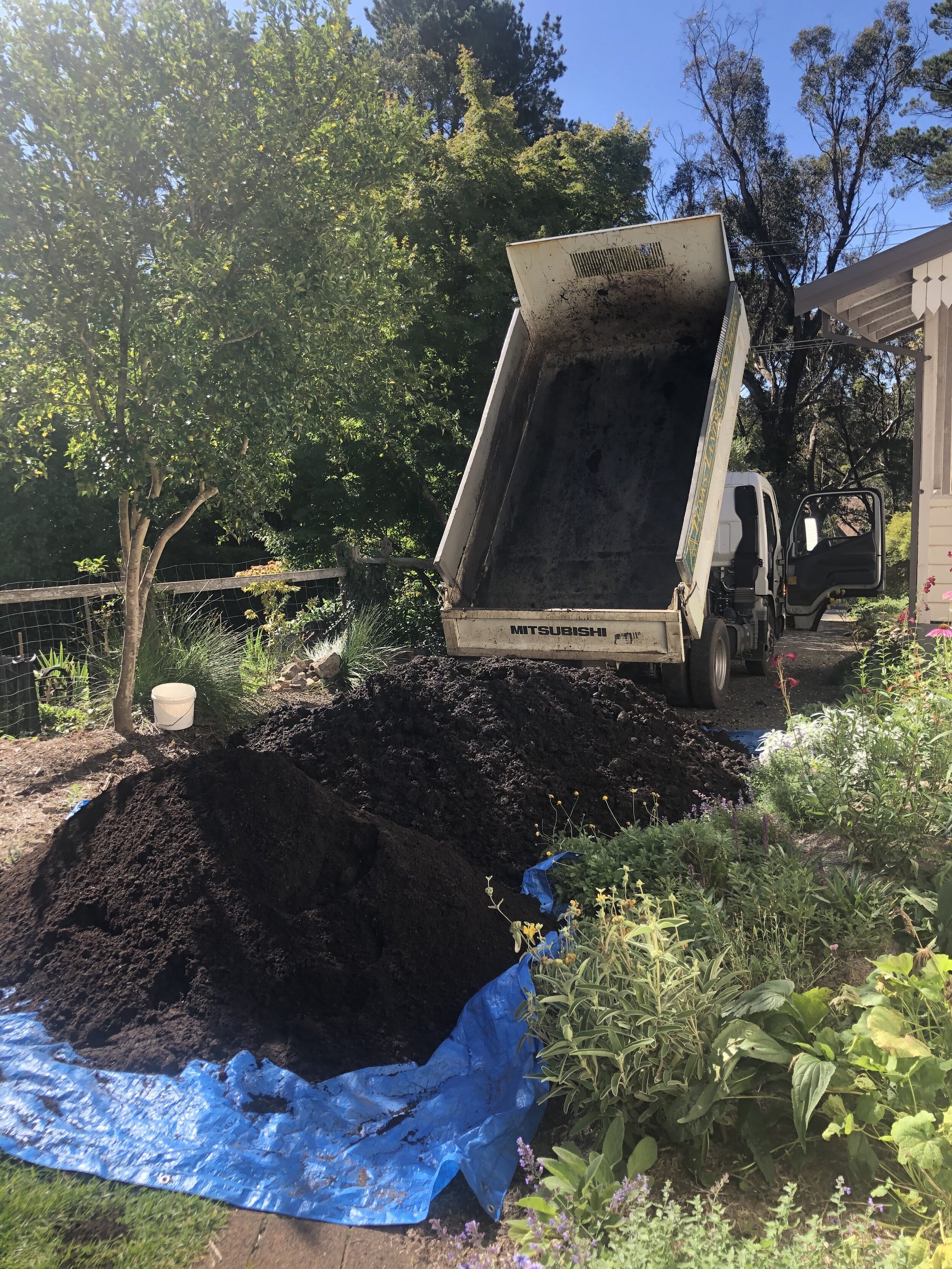Plants are adapted to different environments that foster different soil pH values - think of the oak-health woodlands of North America with Rhododendron, Kalmia and blueberries (Vaccinium) versus the parched calcareous cliffs of the mediteranean with Lavandula dentata. Plants also need nutrients and minerals in different ratios and the right pH allows for the uptake of adequate nutrients which become unavailable outside their ideal range.
The chart below is from the NSW Department of Primary Industries.
Influence of pH on Nutrient Availability
Roses like neutral to slightly acidic soil with a pH between 6 and 7
As you can see in the chart above most nutrients become less available as the soil gets more and more acidic - except for Iron. For instance potassium (K)- a nutrient very important for strong healthy cell walls becomes less available as pH drops below 6. This means that plants will be more susceptible to fungal diseases such as blackspot. Likewise if your soil is above 7 the availability of iron, copper, zinc and manganese starts to wane.
If roses are unhappy with your soil pH they will show with unhealthy leaves and lack of vigour. For instance a too alkaline soil might lead to interveinal chlorosis caused by iron deficiency. If you suspect this, testing the soil pH around the rose would be a good first step.
Also in some rose forums I have seen it mentioned that specific roses respond to different pH soil with slightly different colouration and also stronger or weaker scent. So if your rose was promised to be fragrant and is lacking scent, it might be worth testing you soil pH too. Most nurseries sell easy to use pH kits - I like to use this one developed by the CSIRO.
Ideally you will not have to try to modify your soil pH. I think the less interventions in your native soil and growing suitable plants is best. But if you want to grow vegetable crops or exotic ornamentals like roses and your soil pH is slightly out of the optimal range you can nudge it towards what you want with amendments.
In some parts of our garden we have suuuper acidic soil, with a pH of 4.5. I have amended the soil (at various times, not all at once) with garden lime, wood ashes (from our fire place) and home made compost, and heaps and heaps of mushroom compost and the pH is now closer to 6. We had 3 cubic meters of mushroom compost and 1 cubic meter of cow manure delivered by a local supplier Tunks . This is what that looks like:
I tested the mushroom compost and it has a pH of 8 (alkaline) I will have to keep monitoring the pH.
Hopefully you have the perfect soil, but if you are going to add lime to your soil because it is too acidic be aware that your soil texture will determine how much lime you need to add to shift the pH - as sandy soil is much easier to shift than clay you need much less. Lime and dolomite products differ so I am not going to recommend dosages - you need to follow the directions on the packet. Over applying lime can lead to other nutritional deficiencies as it puts other ratios out of balance and so it is better to apply only a little a time and wait and observe in between applications. Changing pH is a slow process!
If you have very alkaline soil you could try using leaf mould, spent coffee grounds and chicken manure and acidic mulches such as leaves and pine needles to help lower your pH. You can also use sulfur or iron sulfate.
NB: Before adding any amendments (or buying large quantities) I think it is important to first test their pH. Cow manure, for instance, is generally thought of to be an acidic to neutral soil ammendment, (and therefore often advised as a suitable amendment for roses and camellias) however I think it must differ a lot according to source and the cows’ diet. I tested three different local supplies of cow manure at a pH 8, and a bagged cow manure from my hardware store was also pH 8.
Some Soil Ammendments
ACIDIC
Pine needles
Leaf mould
Pine bark mulch
Coffee grounds, Spent tea leaves
Compost (without added lime)
Fowl Manure (more acidic) and possibly some Cow manure (without added lime)
Sphagnum peat
Elemental Sulfur
Iron Sulfate (Also called Ferric Sulfate)
Specialist Camellia fertiliser
ALKALINE
Wood ash
Stabled horse manure (lime added)
Mushroom compost
Garden Lime
Dolomite
Some cow manures

